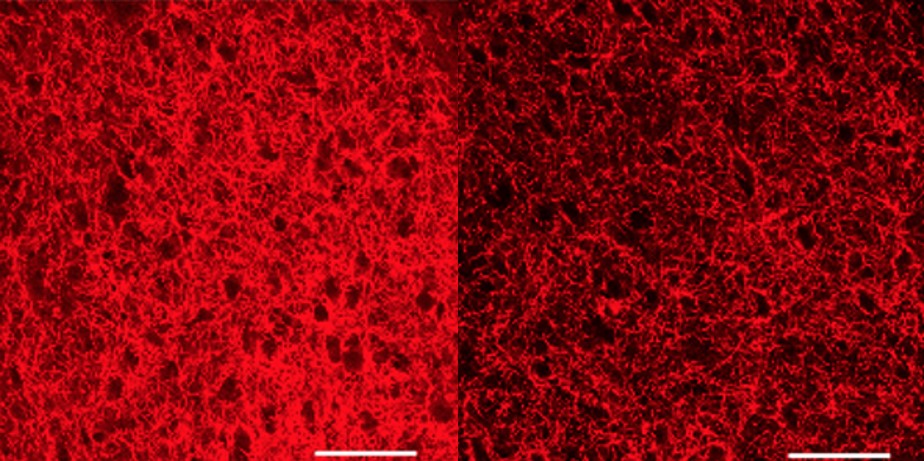Adversity in childhood produces behavioural and molecular changes that confer greater vulnerability to the effects of cannabinoids
Adversity in childhood produces behavioural and molecular changes that confer greater vulnerability to the effects of cannabinoids
A new study by the Neurobiology of Behaviour Research Group at UPF shows that adversity in childhood produces behavioural and molecular changes in sensitivity to cannabinoids.

A new study by the Neurobiology of Behaviour Research Group (GReNeC-NeuroBio) at Pompeu Fabra University shows that adversity in childhood produces behavioural and molecular changes in sensitivity to cannabinoids. The team of researchers led by Olga Valverde suggests that stress at an early age caused by separation from the mother could also alter emotional memories. The study, conducted on laboratory animals, has been published in the journal Neuropharmacology.
Parental care, particularly maternal behaviour, has a profound impact on children’s neurological development. To examine the underlying mechanisms linking early life adversities and cannabis use disorders, the researchers used a model of separation after birth with early weaning that they had previously developed. “This model replicates the pathophysiology of patients suffering from early-age neglect or emotional abandonment during childhood, and its effects on emotional disorders and substance use”, explains Ana Martín-Sánchez, first author of the article. It reproduces some aspects of psychiatric disorders due to adversities in childhood, such as depressive behaviour, anxiety or substance use disorders.
Parental care, particularly maternal behaviour, has a profound impact on children’s neurological development.
“In this study, we have observed that animals displaying early-life adversities treated with cannabinoids have a deficit in emotional-type memory, which are dependent on a part of the brain structure called the amygdala”, Ana Martín Sánchez outlines. Moreover, though they have not observed any changes in cannabinoids’ rewarding effects, early stress does have an impact on the development of tolerance to the effects of cannabinoids, as continuous exposure leads to more severe symptoms.
“Our results show that stress in early childhood promotes behavioural and molecular changes that confer greater vulnerability to the effects of cannabinoids”, details study coordinator Olga Valverde. “We have found that changes in behaviour are mediated by alterations in the signalling of cannabinoid type 1 (CB1) receptors in limbic areas”, she adds.
The findings highlight the importance of research on the role of parental care during early life, as they have a significant influence on the development of some psychiatric disorders, including substance abuse disorders.
Specifically, they observe an increase in basolateral amygdala and hippocampal CB1-expressing fibres and a higher number of CB1-containing cells in the cerebellum. They have also observed how early-life stress can induce a greater number of microglial cells, related to inflammation, in basolateral amygdala and cerebellum, which could interfere in the formation of emotional memories.
“Our findings highlight the importance of research on the importance of parental care during early life, as they have a significant influence on the development of some psychiatric disorders, including substance abuse disorders. This study opens up new lines of future research on the actions of the endocannabinoid system in the regulation of emotional memories”, Olga Valverde concludes.
Funding
Plan Nacional Sobre Drogas – National Plan on Drugs (Health Ministry) and Ministry of Finance (PID2019-104077).
Reference article:
A Martín-Sánchez, A García-Baos, A Castro-Zavala, L Alegre-Zurano, O Valverde. Early-life stress exacerbates the effects of WIN55,212-2 and modulates the cannabinoid receptor type 1 expression. Neuropharmacology (2020). DOI: 10.1016/j.neuropharm.2020.108416.
